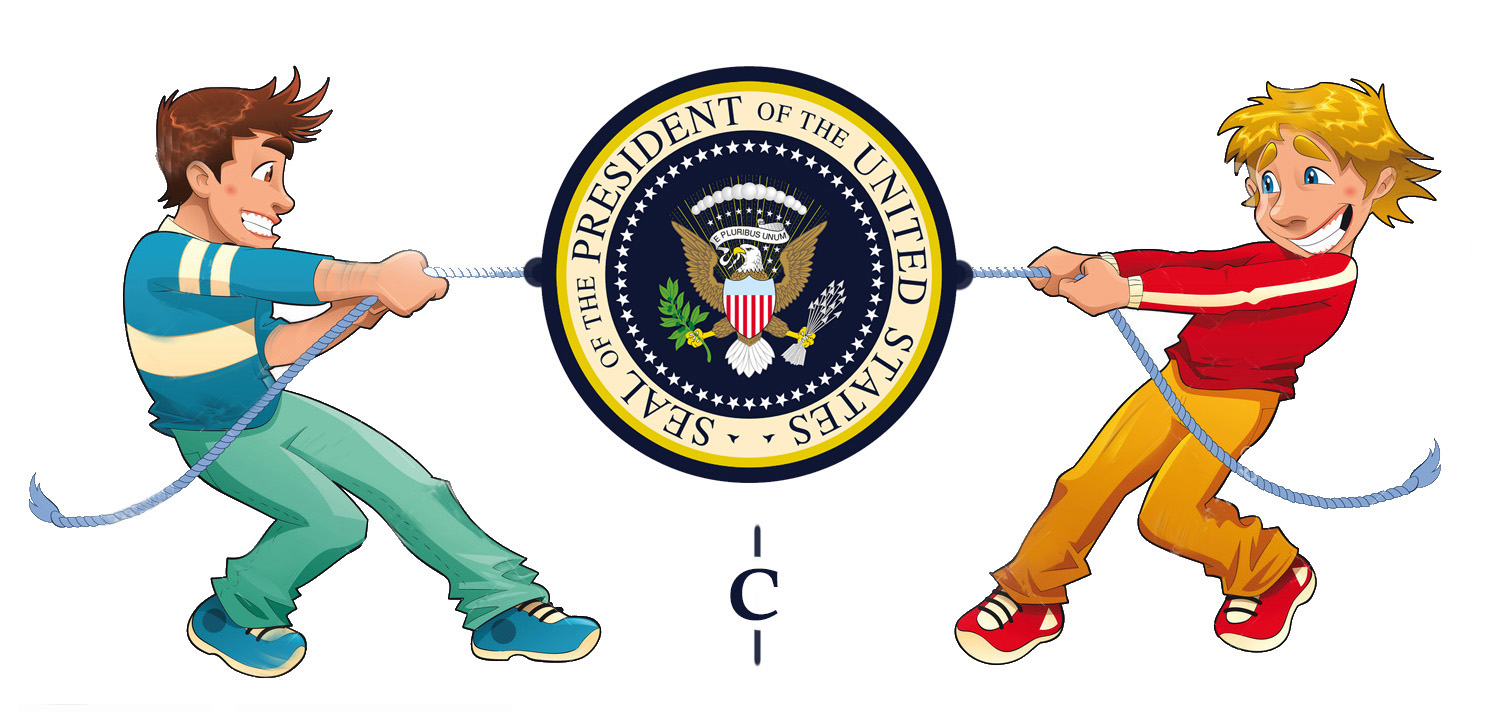
Hi Everyone,
In a recent post I talked about the factors and thinking that led me to change my political views from that of a life long Republican to a Libertarian. You can read the post by clicking here: Why I Became a Libertarian and What That Is (and Isn’t) Recently, I’ve had some substantive email exchanges about Libertarianism. Today, I want to share some good questions that were part of the discussions and my answers to them.
Today – Answering some Questions
Do libertarians think that it is unjust for individuals to consent to be governed?
No. Libertarians believe it is just and proper for individuals to enter into contracts, including contracts that limit their own future activity. But only individuals have the right to determine the use of their own property (including their own life), their freedom of action (but not action that violates the property of others), and their personal property (things they own that were obtained by just consent – such as trades, purchases, etc…). Accordingly I have a right to consent to be governed (which is a consent to an agreement or contract that limits my use of resources in the future). For example, when Darlene and I moved into our current home we were required to contractually become part of and abide by the governance of a road association among the 16 homes that govern the shared private roads that we all use. We consented to be so governed and hence pre-obligated ourselves to the yearly financial assessments that would be voted on by the homeowners. We were able to make this consensual commitment and we were the only ones who could. We were also under no obligation to make the agreement (though we could not buy the house because the owner we were buying from had also bound themselves to the government agreement).
But you can see the rub. I cannot consent to have another person be governed against their consent. I could not (being a consistent libertarian) make a contract on behalf of another person without their consent. It is wrong for individuals to aggress upon another person. I cannot morally take their life, liberty, or property without their consent. [Aside: as a Christian Libertarian I am also under contract with God and thus, for example, cannot become a Dr. Kevorkian and agree to help someone take their own life].
What questions should we ask about Government?
I think the foundational questions are: What is legitimate and illegitimate government? Does government have a special moral status that allows it to do things that are morally wrong for an individual to do? How do we decide the role of government and the limits of its power? Why did our founders determine that England had become an illegitimate government? When can we disagree with and/or resist government? When is it most wise to resist peacefully but still submit? When must we separate or even seek to overthrow a government?
What would you suggest is a good summary answer to these questions?
The best summary answers to these questions that I know of was penned by Thomas Jefferson in the Declaration of Independence:
We hold these truths to be self-evident, that all men are created equal, that they are endowed, by their Creator, with certain unalienable Rights, that among these are Life, Liberty, and the pursuit of Happiness.
That to secure these rights, Governments are instituted among Men, deriving their just powers from the consent of the governed, That whenever any Form of Government becomes destructive of these ends, it is the Right of the People to alter or abolish it, and to institute new Government, laying its foundation on such principles, and organizing its powers in such form, as to them shall seem most likely to effect their Safety and Happiness.
Prudence, indeed, will dictate that Governments long established should not be changed for light and transient causes; and accordingly all experience hath shewn, that mankind are more disposed to suffer, while evils are sufferable, than to right themselves by abolishing the forms to which they are accustomed. But when a long train of abuses and usurpations, pursuing invariably the same Object, evinces a design to reduce them under absolute Despotism, it is their right, it is their duty, to throw off such Government, and to provide new Guards for their future security.
Do Americans really believe these words?
Was Thomas Jefferson correct about government? Clearly believers in Social Contract theory and most American politicians would say a firm no! They would say that government authority is supreme, that the people’s rights are granted by government, that government does indeed have a unique moral status and may in fact aggress against citizens if they deem it necessary for the common good, that the rights of people can be overridden by government, that positive rights exist (such as the right to wealth or wealth equality), and that the union of the states is permanent and in-dissolvable, and that the civil war outcome proved the absolute supremacy of the federal government over the states.
But are we not, according to Social Contract Theory, obligated to obey government?
Social Contract Theory states that people have traded their freedom in exchange for the protection of government. It was developed as a defense of government authority and the King’s rule. However, such an explicit contract has not in fact been executed. I know that I have never made such a contract. Some would respond that our ancestors entered into this contract on our behalf. There are two problems with this response: First, it is unlikely they made any such contract and, secondly, per above they could not make such a contract morally for someone other than themselves. Others would respond that we tacitly entered into contract by using government resources such as roads, etc.. The second objection is easily refuted with a little applied thought (perhaps at another time). Bottom line – if an individual contracted to obey all the decisions of government freely and without reservation – we could then that a general social contract existed. But there is no contract – it is a fiction. But it is a very useful fiction for governments and groups of people that seek to exert control of others. I will write more on this topic in the future.
Can you summarize what a legitimate government is from the libertarian perspective?
Legitimate government is based upon these foundational, essential, and true principles: People have rights that governments cannot remove or alienate. Governments are instituted to protect life, liberty, and the pursuit of happiness. Governments are servants, not masters. They are to be judged by how they perform their essential role of protecting life, liberty, and property. The laws they enact must be just and must not violate the life, property, and liberty of the people. If governments substantially fail to perform their duty, the people must change them.
How does this view of government square with Christian morality?
I believe the Libertarian principles of government are based upon the moral law of God which forbids any person or group of people from stealing from or harming another peaceful and lawful human being. I strongly assert that government has no special status in this regard. It is also bound to the moral law of God to do no harm to people. Just as Fred cannot morally steal from or harm me, neither can Fred gather a group to do so or to form a “government” and have that government decide to steal from me (whether by democratic, representative, or monarchical decision). I hold to this Libertarian summary:
What is morally wrong for a person to do is also wrong for a group and wrong for a government.
Is there ever a circumstance in which it is valid / moral for me to make a commitment on behalf of another person to give up their life, liberty, or property (all of which is really their property)?
The libertarian would answer that this can only be done in defense of property rights. Some examples would be defending one’s property against theft and thus restraining another person or taking the life of an attacker in defending one’s life. I would extend this to the protection of children. As parents we make decisions for our children until they reach an age of accountable self-direction.
As a libertarian what do you think of the U.S. Constitution?
First, the founders were not libertarians in the way I have explained above. However they did believe that governments were formed by people and were created and held accountable to the role of protecting the rights of people (hence the Bill of Rights). They also knew how evil and tyrannical governments could become and sadly, in the case of England, had become. Hence the Constitution as ratified by the States was a contract between those states that created the Federal Government and limited its power and authority to an expressed and limited list (See article 1, section 8). This contract was binding upon the states and placed severe limits on what the government was to do and was not to do (Tenth Amendment). The general welfare clause was part of this limitation and not a license for the Federal Government to define or expand its own powers. It explained the role of the created government as for the common welfare of the states and their peoples. You will note in the Federalist Papers and the words of the constitution a rejection of powers that would advantage one state over another or one segment of the population over another. Who is the final judge of the actions of the US Government? It is not the Federal Judiciary (who is limited by the constitution to limit its opinions to matters pertaining to the function of the created Federal Government as defined and subject to the constitution that formed it). The states that are to be the final judges. Just as Darlene and I would reject our association telling us how to decorate our home (not in the contract) the states can and should reject the actions of the Federal Government when unconstitutional (outside the contract of the states).
As a Libertarian do you support the U.S. Constitution?
I would dearly love to see our nation return to the U.S. Constitution as it is clearly written. It wisely limits federal government power to its essential and just purposes. That would be glorious progress. On the spectrum of things such a return would move us far closer to libertarian principles. As a result, I believe there would be less war, persecution, and economic distress. If we were to achieve such a wonderful restoration I would, as a libertarian,want to even further limit government encroachment on liberty, but first things first.
I am a philosophical Libertarian but practically seek the first and important step of restoring our nation to our constitutional government (which although not fully libertarian is far better than where we have come to).
As a Christian Libertarian what obligations do you have with regards to people and to government?
I have an obligation to God to obey God’s moral law. I am bound to love my neighbor, to not harm or steal from him (or her) or to covet his possessions. I must also seek for those in authority to also so act. I must condemn in principle and in wise practice any illegitimate “abuses and usurpations” (thanks Mr. Jefferson!) that government participates in and to resist as wisdom and prudence requires. Accordingly, I am submitting myself to the U.S. Government and paying my taxes. I pay these taxes even though many are unlawful as they violate the constitutional compact (my conservative constitutional argument) or they are taken from me without my consent and thus are theft (my moral law argument)).
Isn’t being a Libertarian the same as supporting immorality?
Yep – I hear the rumbling in your soul. Indeed, many think that to be a Libertarian is to be a libertine – that is someone who equally affirms any life style or behavior and would in fact actually advocate it. Although that is sadly true of a few libertarians, it is quite incorrect to equate non-aggression with approval. For example, I am against and would never advocate substance abuse, infidelity, selfishness, addiction, narcissism, vulgarity, or similar behaviors. However, these are not aggressive actions that deprive another person of life, liberty, or property. Thus, although I am against them I would not make them illegal or punish them via fine, imprisonment, or loss of freedom. More specifically, I am personally against someone using meth or cocaine or cannabis, but I am also squarely against laws that result in the punishment of voluntary drug use or voluntary drug trade. Prohibition was a big national mistake. The drug war is version 2.0.
Although that is sadly true of a few libertarians, it is quite incorrect to equate non-aggression with approval of immorality.
Why is liberty indispensable to the United States (or any nation)?
In a nutshell: Following the non-aggression principle enables a pluralistic society where each person owns their own life and pursues their own happiness. Freedom of speech, religion, lifestyle, association, safety, security, etc. are only truly secured for us if we embrace non-aggression. Governments that go beyond preservation of life, liberty, and property – and aggress upon life, liberty and property, even for professed noble purposes – become ignoble tyrants.
Following the non-aggression principle enables a pluralistic society where each person can own their own life and pursue their own happiness.
Currently, our nation is going down the road to dissolution. Both the right and left are intent on imposing their opinions on society. Consequently, we are in a culture war. Our current and recent presidents, nationalism, and populism are symptoms of this war and the results are extreme lack of tolerance and respect for property. Current examples include: no fly lists which include those government defines as suspicious, the Patriot act, civil asset forfeiture, and Obamacare.
Constitutional liberty is the only hope for the United States to remain united. Without restraint of aggression we will continue to devolve into partisan oppression, and ultimately political disintegration.
So why do you submit to a government that in many ways you find unjust and illegitimate?
Why do I submit to injustice in government? I submit with many regrets because I find it is wise and prudent to do so. Submitting allows me to care for my family and friends, retain and use my life and my property, and to serve my neighbor through commerce and charity. [Note: the Apostle Paul exhorted Christians living under horrible government to be wise and essentially keep their heads down for the sake of God’s people]. I also love the principles of liberty and justice that America was founded on and long for that light to shine again so that we may be a light to the world and a glory to God.
Until next time – Will





